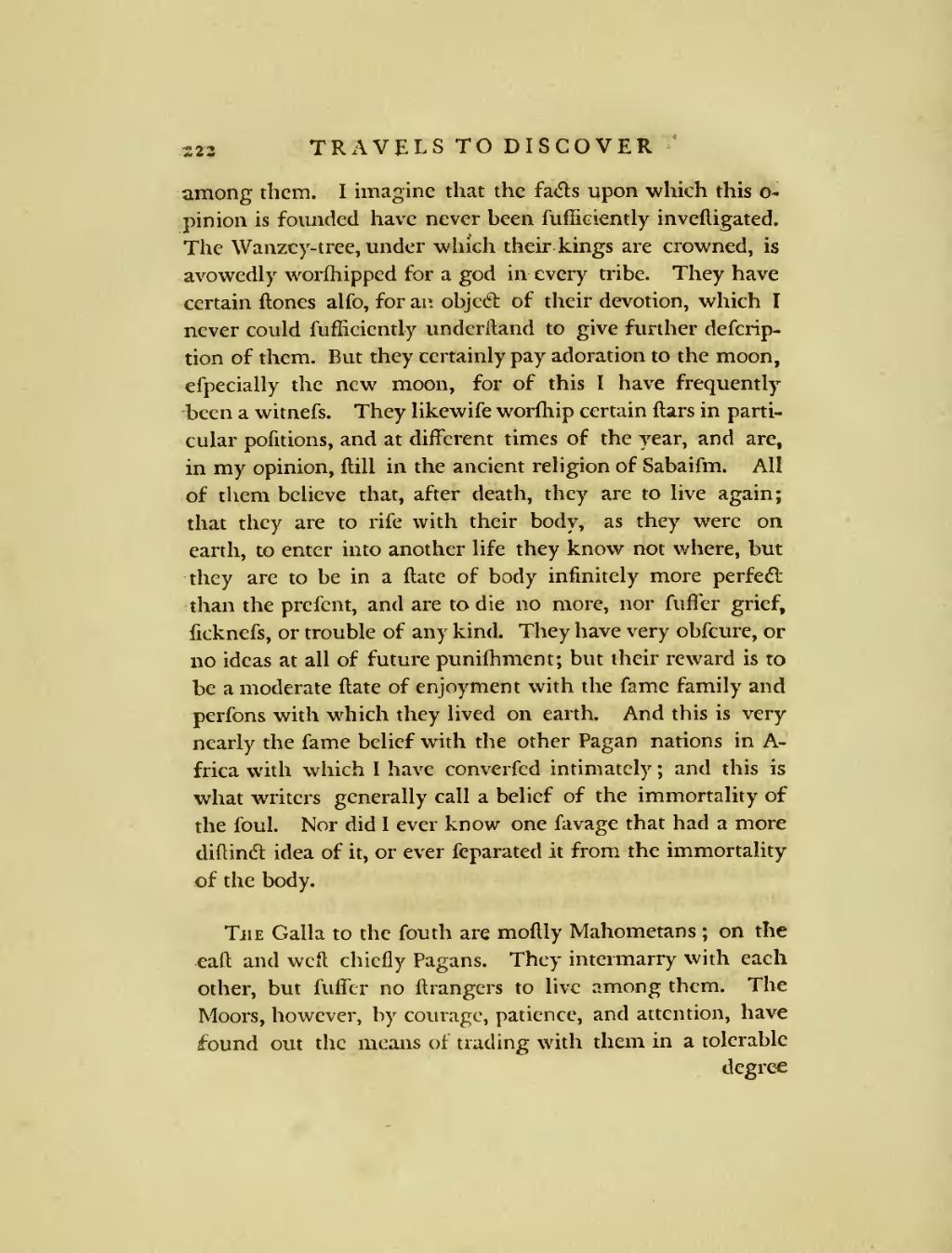among them. I imagine that the facts upon which this opinion is founded have never been sufficiently investigated. The Wanzcy-tree, under which their kings are crowned, is avowedly worshipped for a god in every tribe. They have certain stones also, for an object of their devotion, which I never could sufficiently understand to give further description of them. But they certainly pay adoration to the moon, especially the new moon, for of this I have frequently been a witness. They likewise worship certain stars in particular positions, and at different times of the year, and are, in my opinion, still in the ancient religion of Sabaism. All of them believe that, after death, they are to live again; that they are to rise with their body, as they were on earth, to enter into another life they know not where, but they are to be in a state of body infinitely more perfect than the present, and are to die no more, nor suffer grief, sickness, or trouble of any kind. They have very obscure, or no ideas at all of future punishment; but their reward is to be a moderate state of enjoyment with the same family and persons with which they lived on earth. And this is very nearly the same belief with the other Pagan nations in Africa with which I have conversed intimately; and this is what writers generally call a belief of the immortality of the foul. Nor did I ever know one savage that had a more distinct idea of it, or ever separated it from the immortality of the body.
The Galla to the south are mostly Mahometans; on the east and west chiefly Pagans. They intermarry with each other, but suffer no strangers to live among them. The Moors, however, by courage, patience, and attention, have found out the means of trading with them in a tolerable
